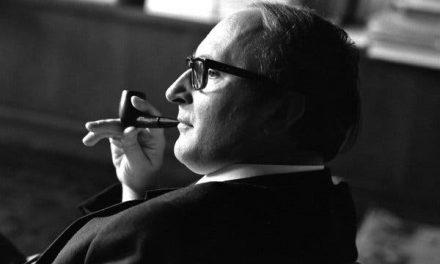Many of the articles, reflections, or posts that I have read on the killing of Osama bin Laden lament the situation, expressing a desire for some other solution and, simultaneously, recognizing that no other way seemed possible. Let me sketch five narratives that I think have led to the seeming necessity of killing bin Laden.
- We cannot be isolationists. In the build up to and early stages of World War I and World War II, the United States privileged an isolationist foreign policy. As a country, we preferred not to get involved. The consequences of this approach seemed to lead to all out war. When we became a superpower in the wake of WWII, we felt not only forced to take a leadership role in international politics but that war would emerge if we did not. Thus started the assumption that the United States must respond. First it was communism, and then it was terrorism in the light of 9/11.
- September 11th was an act of war. The violence, destruction, and suffering that emerged in 9/11, left a wound in people, society, and the country. It was and is a wound that cannot be healed by human efforts. After we emerged from our initial shock, we understood these events as acts of war. Someone had declared war on us and attacked us, successfully, on our own soil. We must respond. When we figured out it was Al Qaeda led by Osama bin Laden, we chose to fight them, declaring war on them and their terrorist tactics.
- We must respond with war. The initial responses in the United States and globally were acts of compassion. People in New York worked together to help each other. Construction workers converged on the Pentagon to repair it in less than a year. International leaders condemned the attacks. Yet, as we must respond and 9/11 was an act of war, we must respond by waging war. We must do so to avoid more attacks and more destruction. If we do not fight and protect ourselves, we will be defeated and the whole of the civilized world will be threatened.
- We must be secure. 9/11 demonstrated our vulnerability. We were attacked by airplanes, but it could have been bombs, nuclear weapons, or germ warfare. Through his Al Qaeda network, bin Laden might have access to these devices, and, if he does not, several of his friends did. We must stop him to stop Al Qaeda. We went to war with bin Laden, but, in the meantime, we must protect ourselves at home. We adjusted the legal system to catch any potential threats in the country. We ramped up airplane security: everything must be scanned, shoes and belts must be removed, no more liquids. At every turn our priority became security. Bin Laden and his followers were abroad, but they could also be here in our country. We must stop the threat he posed wherever we found it.
- We can do nothing else. We set our priority on security. We must kill bin Laden. What else could we do? With him alive and in charge, we were in danger. If we kill him, we would be safer. If we captured him, what would we do? Prosecute him? But where? Not the U.S. court system as he was not a citizen. Not the international courts as they were often unsympathetic to the United States. Keep him at Guantanamo? Maybe. But then what? Would we subsidize his life while he sat in jail? Would we interrogate him for information? Would we have a military trial? Would he receive any other sentence than death? If we let him live, wouldn’t he just taunt us for our weakness? There seemed to be nothing else we could do. We were fighting a war for our security, and this was the only way to make us secure.
I highlight these factors mostly as a way to start a discussion but also because they strike me as leading to the logic of our current situation: We must respond to the act of war that was 9/11 with war, we must wage war for security, and the only true security is the stopping of our enemy, Osama bin Laden.
As you have read, I hope you had moments thinking “what about this” or “it could have gone like this” or “we should have understood it this way”. These moments, I think, are where our story might have gone differently and led to some other solution.



Trackbacks/Pingbacks